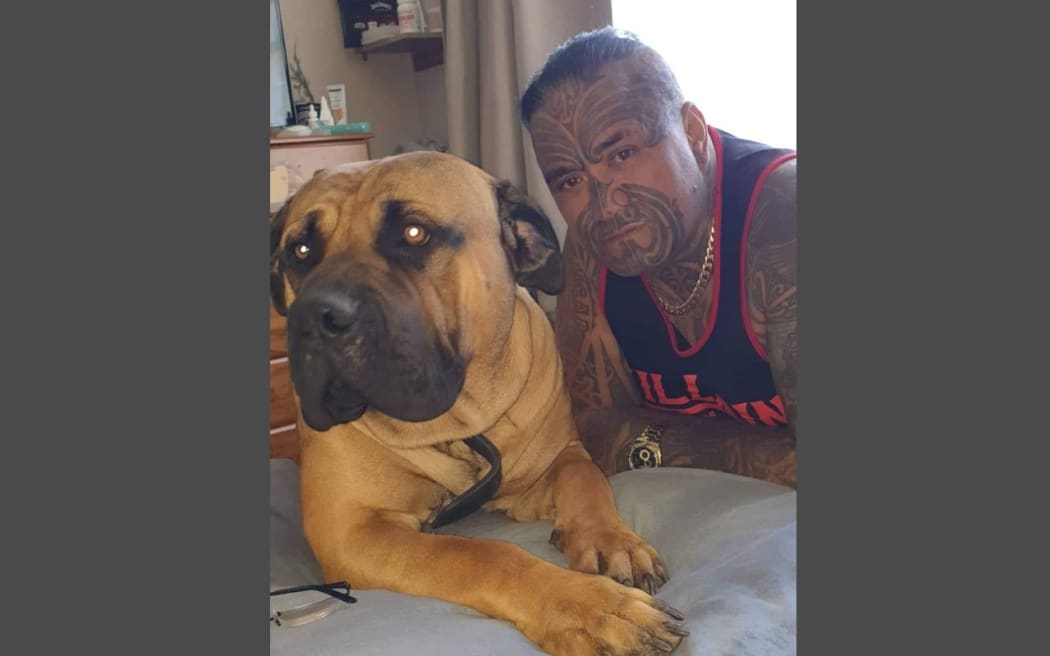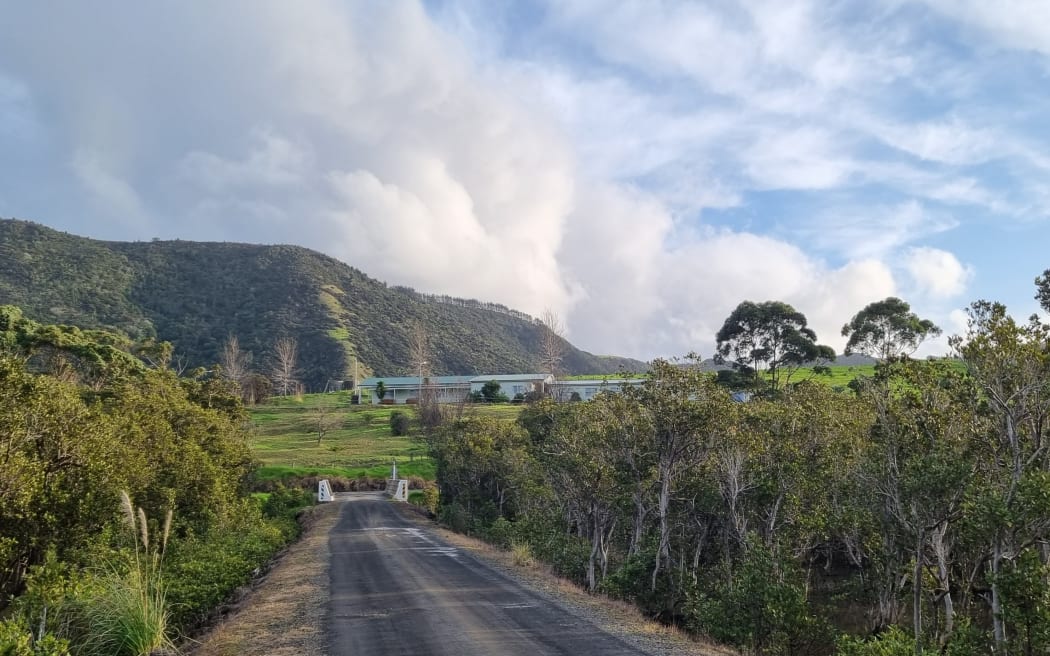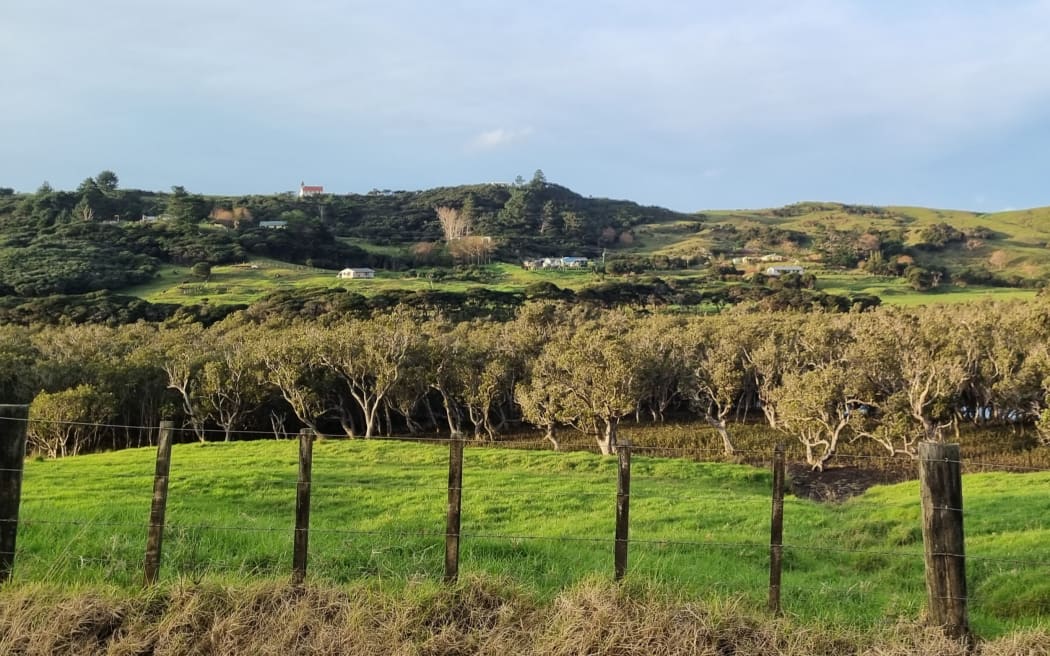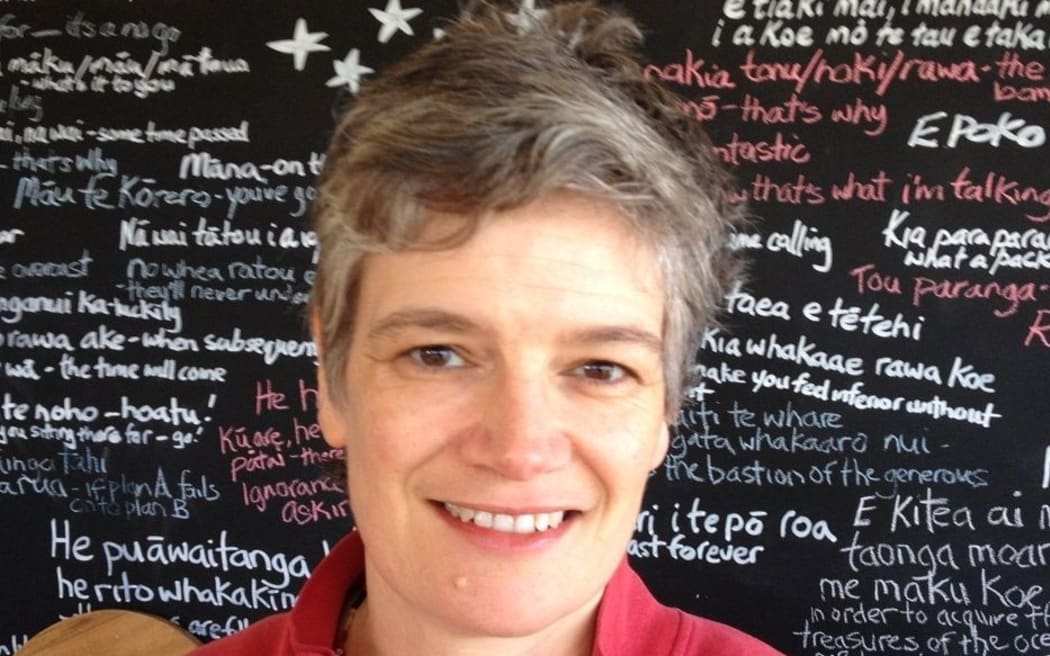A cousin of Tommy Murray, whose body was taken from Wellington to the north against his wife's wishes say they were doing what they thought was right and in accordance with their tikanga.

Tommy Murray. Photo: Supplied
Murray died suddenly last week at his local gym, at the age of 54.
His wife Sara is planning on taking legal action to get her husband back and insists he wanted to be cremated - to be with her.
When Murray's whānau from Te Tai Tokerau and his daughters and mokopuna from Australia arrived in Wellington, they were concerned about plans he was being cremated.
He was the first in his whānau to receive a mataora - a full facial moko.
Hilda Halkyard-Harawira was a cousin of Murray's and said once the whānau was made aware of the plans, they decided to bring him back.
"I do want to thank Sara for loving our cousin. I really do and I do feel for her. I know it sounds strange but those whole customs around mataora, a young wife and we didn't want him to be roaming around Wellington bothering other people because he was in the wrong place.
"They [the whānau] didn't think it was appropriate to, as we say, go to Mahuika, or to be burnt, and their words were 'like rubbish' and so they were very concerned about the mataora because he's the first in our family."
The whānau were concerned about what would happen to Tommy's ashes if Sara Murray were to remarry.
Halkyard-Harawira said they were fulfilling Tommy's wishes he conveyed to his two daughters, who had come over from Australia.
"They [his daughters] are happy in themselves that they have achieved what their father told them that he wanted to come home and I can understand Sara's anguish as a wife. When you're faced with this, and I have been in that situation myself, you really just want to be with the one who's there with you. But there's a greater realm of wellbeing out there and Māori are always connected to their home, whether they've lived there their whole life or they're barely visited."

Te Kotahitanga marae Photo: RNZ / Samantha Olley
Sara Murray was left distraught and in disbelief the whānau took her husband from their home without any discussion. She recalled it as a forceful and violent process.
She described her husband as the love of her life and was vowing to do all she can to get him back, including considering legal action.
Halkyard-Harawira said she was not there when the whānau took the body and the forceful aspect was one criticism, but the whānau were doing what his daughters and mother wanted.
"That's one opinion. I've been in several different kinds of situations where bodies have been asked for, declined, there are so many ways that people can ask and do. I think for us as a whānau, I know that cremation is great for some people for various reasons, but I think that we would always have been really whakamā if we had allowed that to happen given he had a mataora."

Whangapē settlement Photo: RNZ / Samantha Olley
Not the first case, nor the last - expert
The issue of the tūpāpaku (deceased) being taken from a tangi by other whānau is not new - stories of children of a parent laying on the coffin to stop people from taking it while a van with the engine running waits outside - and similar stories - are not uncommon.
More often than not, whānau pani (the grieving family), whānau and the hapū stay to grieve and protect the tūpāpaku at all times.
This story has reignited discussion and debate on the issue, with some specific cases making headlines.
One example was James Takamore, whose tūpāpaku was taken from Christchurch in 2007 against his wife's wishes, sparking an eight-year legal battle that went as far as the Supreme Court - which ruled in the wife's favour.
Ultimately, it ended in mediation with all sides - he remains where he was first buried at Kutarere urupā.
Legal expert Dr Carwyn Jones said among many aspects of the case, one of the key things that Takamore v Clarke showed was the real limitations to what the courts could do.

Carwyn Jones Photo: Cole Eastham-Farrelly
"There are some real practical difficulties as well as the legal challenges but one of the things we saw in Takamore, the decision from the courts was not where the matter was resolved, the courts demonstrated the limitation of the NZ state legal system in engaging with some of these tikanga issues, because it was only when there was a tikanga based process, a mediation that was facilitated by the iwi that there was a resolution agreed between the parties in that case," Jones said.
"I think in terms of really thinking about about how to practically come to a good outcome here I think looking to those tikanga based processes of resolution to address these tikanga issues is the way to go."
Another law academic and expert on the issue, Mamari Stephens, said it was not the first case and it would not be the last.
"It's one thing to recognise and to ensure that tikanga Māori is taken account of and paid attention to. But it's a difficult thing then when it comes to courts making decisions that end up determining or ruling in some way on the efficacy or the appropriateness of tikanga. And that's what we have to be thinking about what is this new legal kind of context going to be that we're moving into?
"There's risks associated with it, but this kind of case is not going to go away, it's been happening for a long time and it's going to continue to happen."
If it were to go to the court, it would be interesting to see how the court would rule, she said.

Mamari Stephens Photo: Supplied
"It might be that tikanga has to be examined a little bit more closely.
"Bishop Manuhuia Bennett defined tikanga very simply, he said that all that tikanga is, is doing the right thing in the right way for the right reason. So for courts to examine whether or not the right thing has happened in the right way for the right reason, that's going to be a matter of more evidence, it's going to be a matter of kind of more close scrutiny. Will the courts go there?
"Will they need to go there, in which case there might be certain circumstances that might mitigate against this, whatever the tikanga being followed at the time, will the courts be bolder in making determinations?
"In Takamore, they side stepped it, they really didn't have to. But the courts have shifted a bit now in their attitudes, it may be that they'll bit more bold in making determinations as to whether or not the right things done the right way for the right purpose."
While Tommy Murray lies in Whangapē, with his father and other whānaunga, the whānau say an invitation remains to his wife to go to te tai Tokerau.
"We are hoping when Sara is ready, I know it's hard for her, that she could come north, and if she wants we will have a karakia with her and to see where Tommy is," Halkyard-Harawira said.



